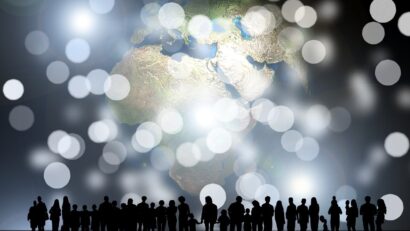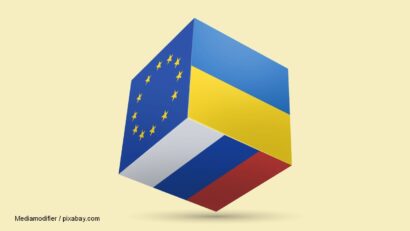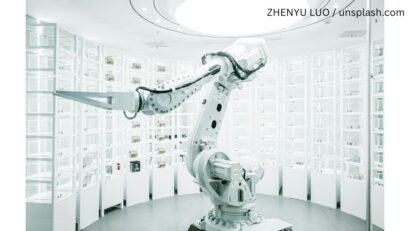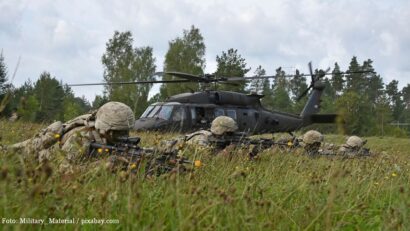Cultured Meat, a Possible Solution
The idea of producing meat in the laboratory is not a new one
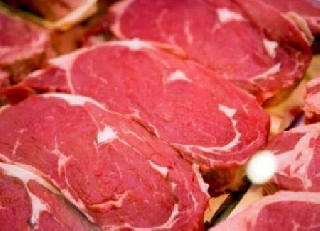
Corina Cristea, 10.05.2024, 13:16
The idea of producing meat in the laboratory is not a new one, it appeared more than two decades ago, starting from a practical mission – NASA funded a study at that time with the idea of finding solutions to provide food for astronauts. The outcome? In 2001-2002, NASA experiments with cultured meat production, produced the first edible sample of lab-grown meat: a fish fillet made from goldfish cells. Contested by many, today, after years of research and testing, cultured meat has become a viable product that is slowly making its way into commercial consumption.
The first artificial beef burger appeared in 2013, being created by a team of researchers from Maastricht University in the Netherlands. Prepared and tasted in London, the burger weighed 142 grams, and the creation process cost 250 thousand euros! The US and Singapore are among the first countries to allow the sale of cultured meat, and the first restaurant selling such meat opened in 2020 in Israel, in Tel Aviv. European countries such as Germany, Spain and the Netherlands are already investing significantly in research and development, preparing for the moment when cultured meat reaches consumers.
Globally, more than 150 companies have emerged in the last ten years, investing a total of about $2.8 billion in research and testing. For its part, the EU has invested €25 million in funding for sustainable protein research, including this type of meat. Invited to Radio Romania, Professor Petru Alexe from the Faculty of Food Science and Engineering of the “Lower Danube” University in Galați (east) spoke about what ten years ago was just a curiosity presented as a futuristic solution to cover food requirements for the growing population of the planet. Is cultured meat a solution? And what exactly is cultured meat? Or artificial, as it was called at first.
Here is professor Petru Alexe:
“Initially, the idea of artificial meat appeared on the market, after that the necessary correction was made, because it is a meat that means a multiplication of muscle cells outside the animal body. That is, in other words, certain stem cells are harvested from animals and transferred into a bioreactor, where they multiply and from which this cultured meat is obtained. Due to the fact that it starts from a living source, an animal source, we cannot call it artificial meat, it is not entirely produced by humans, but based on existing cells in the animal. It’s muscle tissue only, and possibly progress has been made on the fat tissue dosing side as well. The animal is not reconstructed, we do not have such a development of science, but only the muscle cells are multiplied in such a way as to obtain this cultured mass of muscle tissue, which can be consumed without any problem, as demonstrated by the authorizations obtained by this meat.”
In the bioreactor, the stem cells are immersed in a liquid containing salts, vitamins, sugars, and proteins, as well as growth factors. The oxygen-rich, temperature-controlled environment allows cells to multiply at a rapid pace. The stem cells then differentiate into muscle fibers, which coalesce, and the meat can be ready for processing or cooking within weeks.
Again, Professor Petru Alexe:
“Meat can be of any type, it can be fish, chicken, pork, and beef. It’s just a multiplication problem. There is no doubt that the taste of the meat is given, in general, in direct correlation with the diet. This is about the influence of the nutrients we put in this bioreactor. Because, if we make an analogy, in the end the animal is also a bioreactor, only that it supplies itself with nutrients, or we help it from time to time. The point is that everything we bring into that bioreactor we will find in the meat side. For the moment, we do not have a complex consistency, nor are the assortments very varied, but certainly, as in any research, things will go further.”
Humanity consumed 364 million tons of meat last year, and according to the latest projections, global meat demand will increase by at least 50% by 2050! In the context of traditional agriculture, this will create huge pressure, and cultured meat can become an environmentally friendly alternative, its supporters say. It could have a significantly lower environmental impact than conventionally produced meat, requiring 90% less land, producing 94% less air pollution, and being able to reduce greenhouse gases by 92%. In addition, they add, unlike meat from intensive animal husbandry, cultured meat does not require antibiotics to control diseases caused by bacteria such as Salmonella or E. coli. Thus, the alarming phenomenon of the transfer of antibiotics into the human body through the consumption of meat and the development of antibiotic resistance, considered by the WHO as a global threat to public health, would be reduced.
On the other hand, under the motivation of protecting culinary traditions, Italy is the only country in the world that, in November 2023, banned the production and marketing of cultured meat. The law has been criticized by the scientific community and environmental organizations as being at odds with global trends and openness to this opportunity all over the world. If the EU were to approve the sale of cultured meat products, Italy (as well as Romania, if the ban already approved by the Senate also passes the Chamber of Deputies) would not be able to stop imports from other EU member states.

